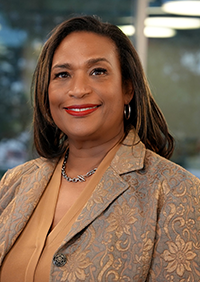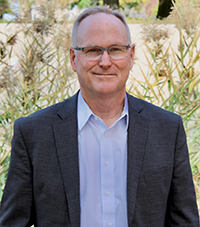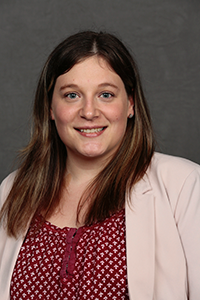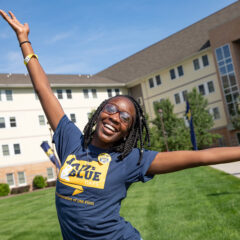UM-Flint researchers Donaldson and LaCosse bridging the gap in STEM education for Flint's children

How do we prepare our children for careers that do not yet exist? The rapid pace of technological development in areas such as artificial intelligence is transforming the workplace, likely creating new jobs that we cannot even imagine today.
For Flint's children, decades of underinvestment in the area's schools have resulted in a significant gap in STEM education exposure and access compared to their peers in wealthier districts.
E. Shirl Donaldson, assistant professor of engineering at the University of Michigan-Flint, saw a way to bridge the gap using a model from her hometown of Detroit: vacation Bible school.

"When I was young, the church was the social hub of the Black community, and I spent many summers in vacation Bible school — learning new ideas, doing arts and crafts, and making lifelong friends," Donaldson said. "I attended church one Sunday with my parents and the pastor acknowledged the recent high school graduates in the congregation. That got me thinking, 'Can we use a Bible school model, make it more culturally relevant, and offer STEM summer schools for Flint's children?'"
Donaldson contacted Ken Sylvester, the director of the UM-Flint Office of Research, who invited her to join a group of faculty members collaborating to develop proposals for the National Science Foundation. The group was responding to the foundation's request to focus on projects that minimize gaps in access to educational and career opportunities across socioeconomic groups.
"For various reasons, UM-Flint historically hasn't been as engaged with the Flint community to offer STEM education and youth programs as we should have been. These research proposals reflected the campus's effort to build partnerships with the community to break through some of the barriers that have limited access in the past," Sylvester said.

The original research group, which also included Marva Furman, executive director of the Urban Institute, Mihai Burzo, professor of engineering, Jill Witt, associate professor of biology (now at Lake Superior State University), Nathaniel McClain, assistant professor of education, and others, met with local pastors and youth groups to learn more about how UM-Flint could partner with them to enhance STEM educational opportunities in the city of Flint.
"The church leaders and youth organizations that we met were excited about partnering, and they know the power that STEM education can have in a community," said Sylvester. "We learned that programs like the vacation Bible schools are less common now, and these groups are looking for ways to revitalize their youth programming. We thought developing a STEM program was a good avenue, and the pastors were keen on it."
The team developed two grant proposals for the NSF, which were not awarded, but this did not deter them from continuing their efforts. Thiago Ferreira, assistant professor of information technology and informatics, and Jennifer LaCosse, assistant professor of psychology, joined the team. Collaborating with Donaldson, Ferreira and LaCosse drafted a game plan to engage the community in learning how to co-create a STEM program.
"When we started this project, we didn't realize how much information these parents lacked, specifically regarding how to access STEM education," Donaldson said. "So the project's goal pivoted from developing a summer STEM school for children to developing interventions designed to support Flint's parents as they encourage their children to pursue higher education."
Donaldson's approach aligned well with LaCosse's research, which focuses on minority groups in STEM, including women, first-generation college students, non-native English speakers, and Black and brown communities.

"Flint's schools have left our children behind, and revitalizing our community means focusing on educational opportunities outside the current system," said LaCosse.
The research began with listening sessions, during which Donaldson, Ferreira and LaCosse met with parents to gauge their knowledge of STEM education. Based on these focus groups, they designed a survey to capture the specific needs, concerns and experiences of Flint's parents regarding college preparation and careers in STEM.
With the NSF grants unavailable, the team sought alternative funding sources, which led LaCosse to apply for and receive the 2024 Anti-Racism Research & Community Impact Faculty Fellowship from the National Center for Institutional Diversity at the University of Michigan.
The final phase will involve testing a program tailored for Flint's parents to increase their confidence in supporting their children's pursuit of college education and STEM careers.
"Our primary goal is to present what we've learned to the Flint community so we can collaborate on new programs," LaCosse said. "We're also building a stronger relationship between UM-Flint and the local community and making it clear that we're their partner in supporting our children to achieve academic excellence and success."
Additionally, conducting research in cities like Flint, where socioeconomic factors have affected education, has been valuable. LaCosse, Donaldson and Ferreira published a research paper in the Behavioral Sciences journal to share these experiences with other researchers, with the hope of helping cities in similar situations.
"Ultimately, we want the community to look to UM-Flint and see us as a highly engaged partner, integral to Flint's revitalization," Donaldson said. "This research, and the programming it will help inform, can change lives and this community."
Flint parents interested in participating in the second phase of the research survey can fill out an inquiry form to be contacted by the research team.
- College of Arts, Sciences & Education
- College of Innovation & Technology
- Community
- Computer Information Systems
- Computer Science
- Education
- Engineering
- K-12
- Psychology
- Research
- Technology
- University News
Kat Oak
Kat Oak is the communications specialist for the College of Arts, Sciences, and Education. She can be reached via email at katheroa@umich.edu.

